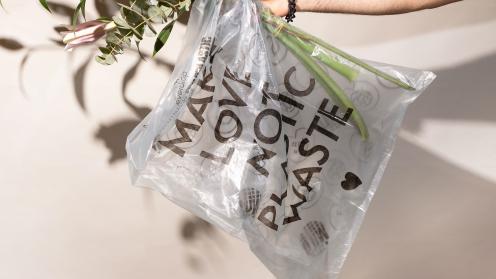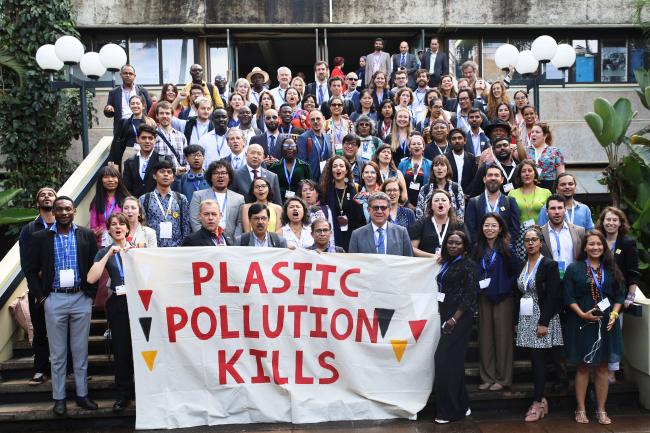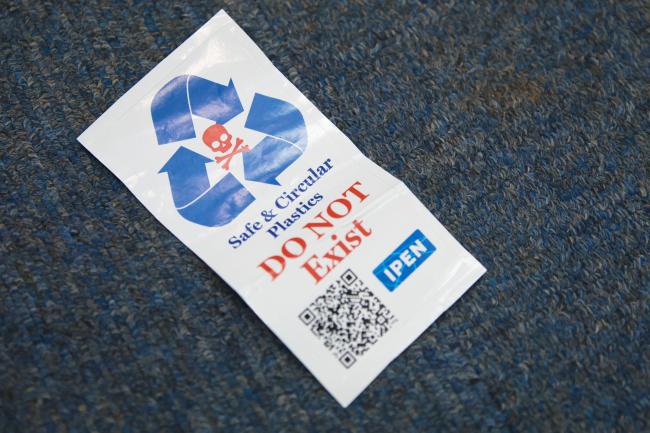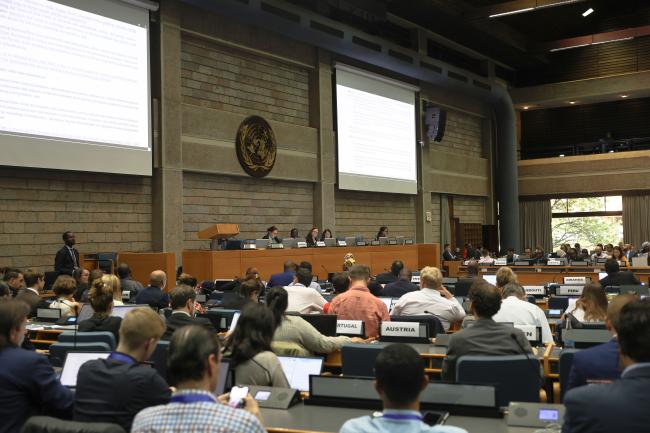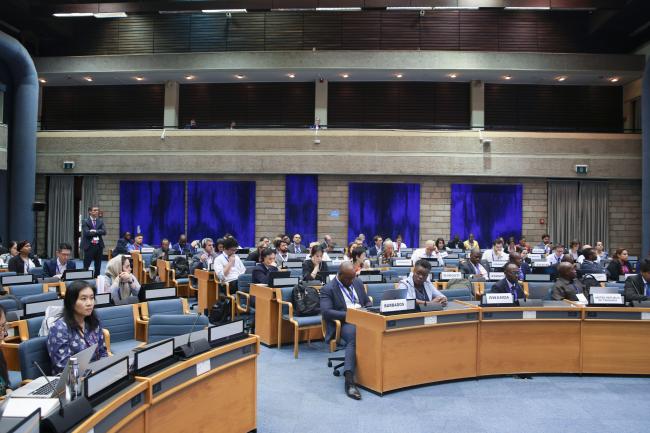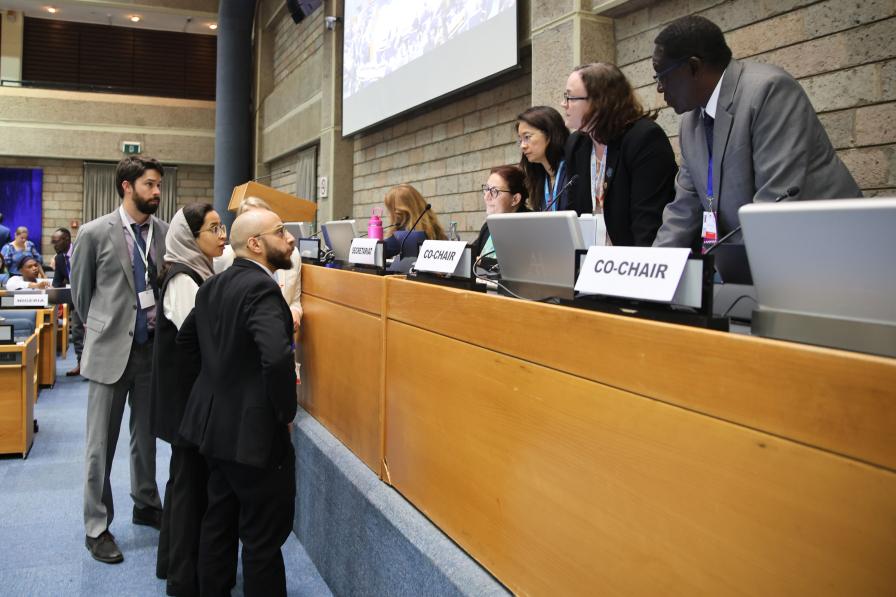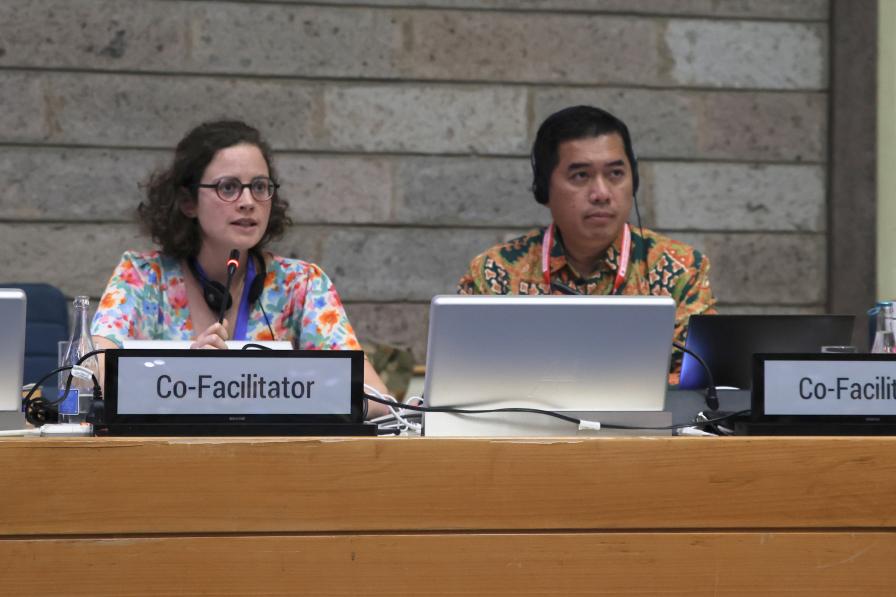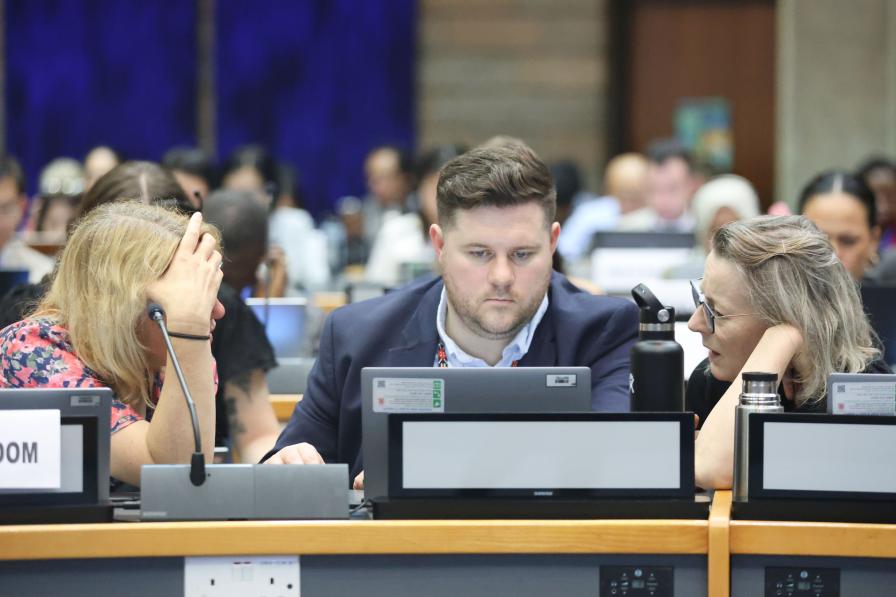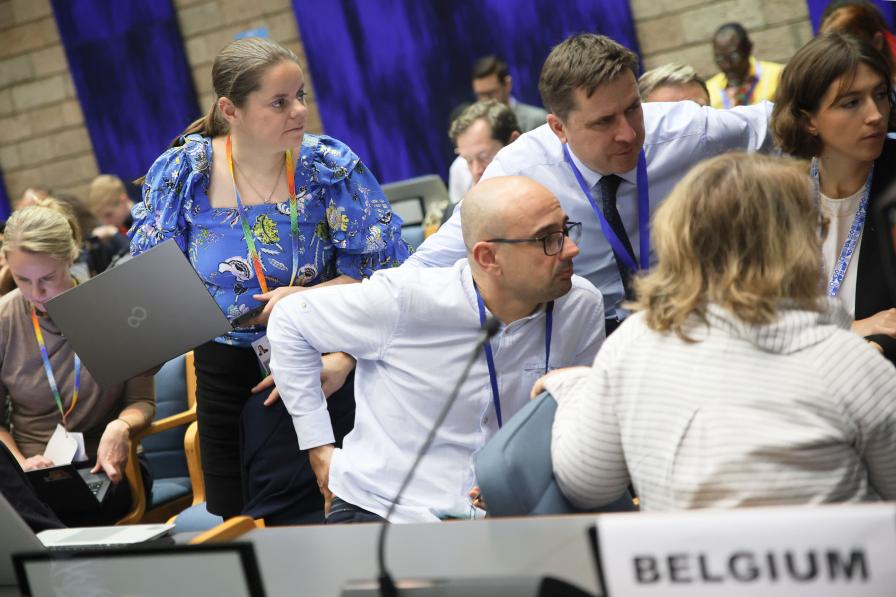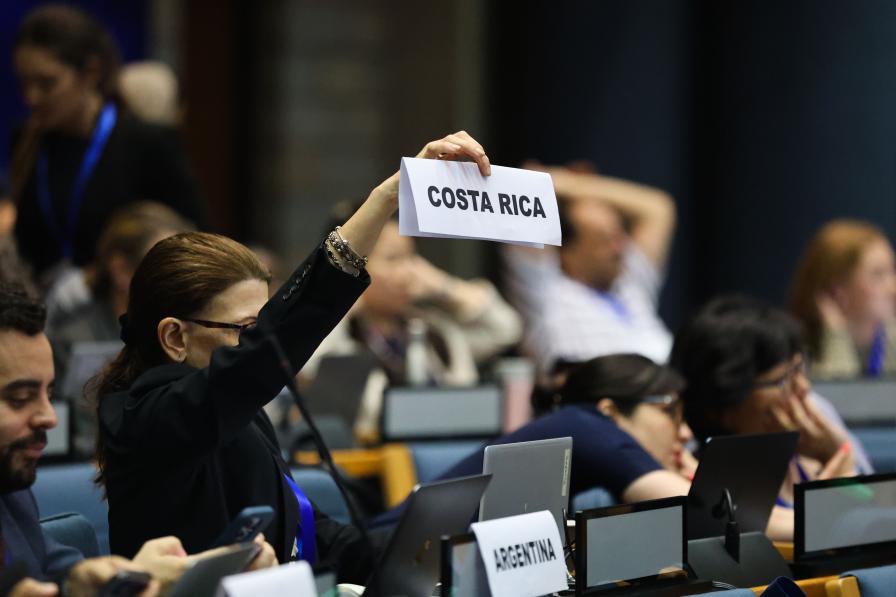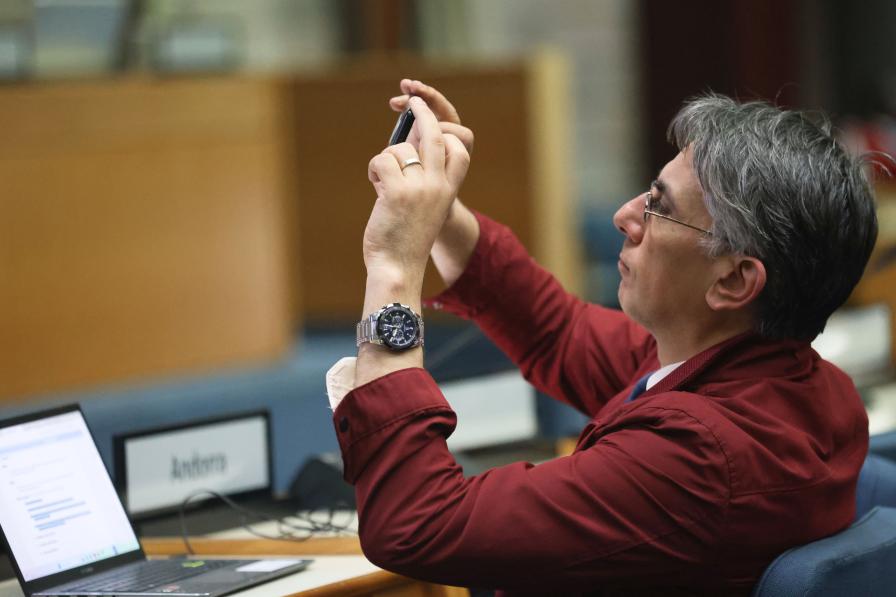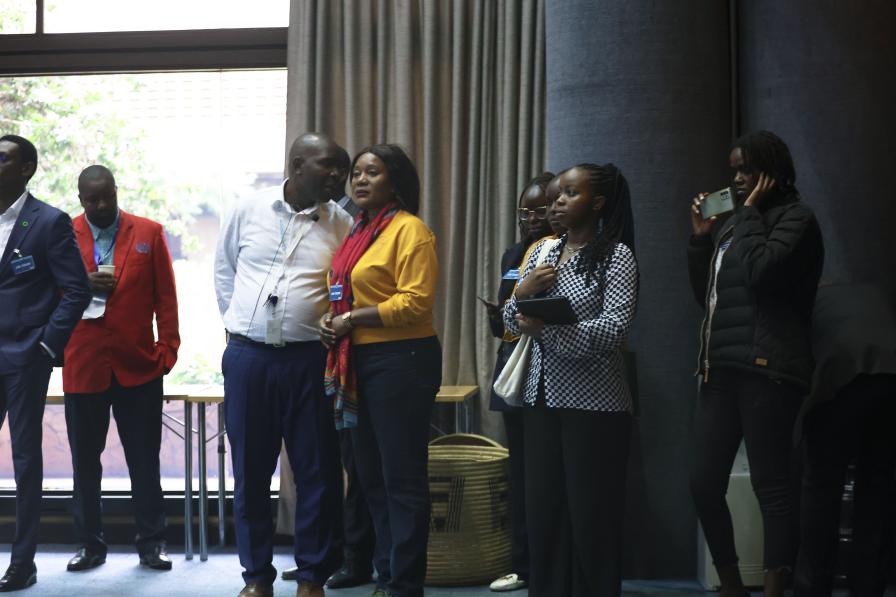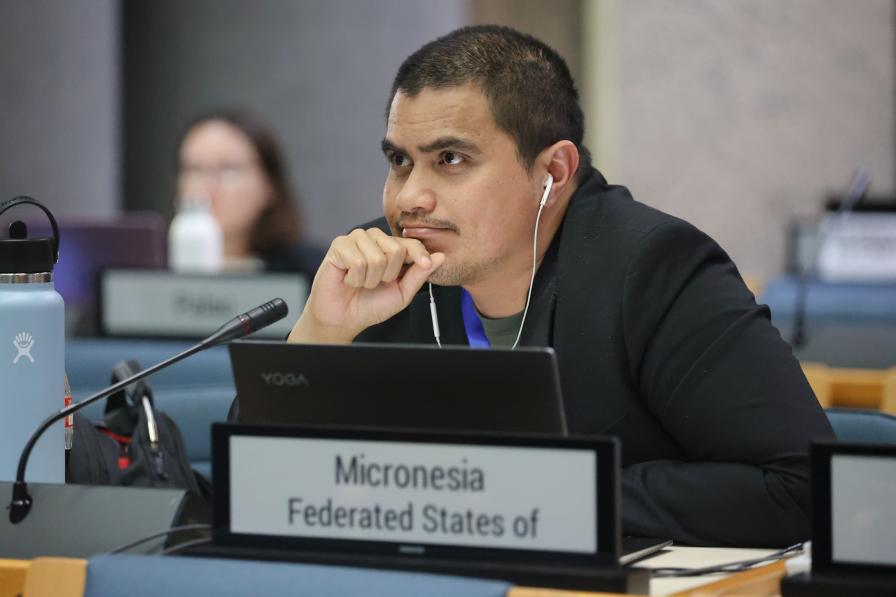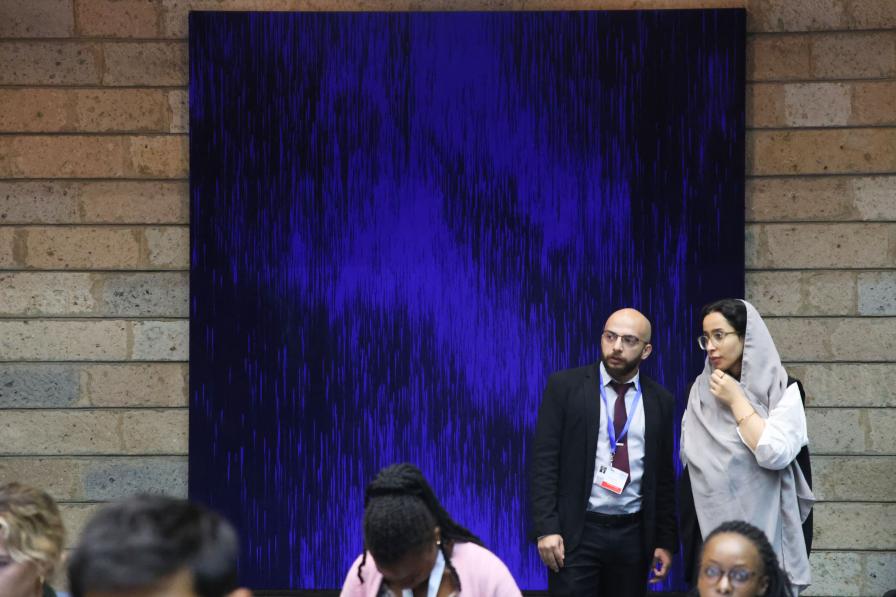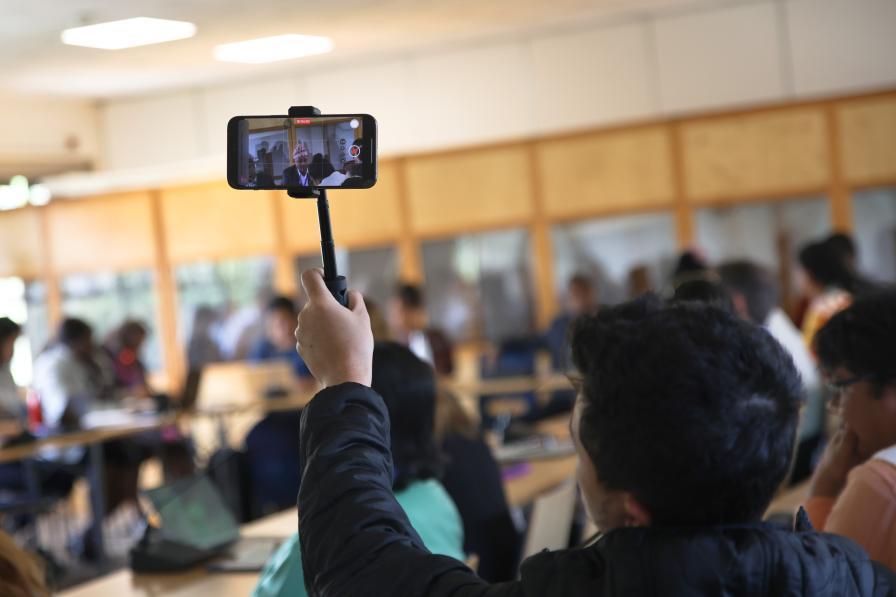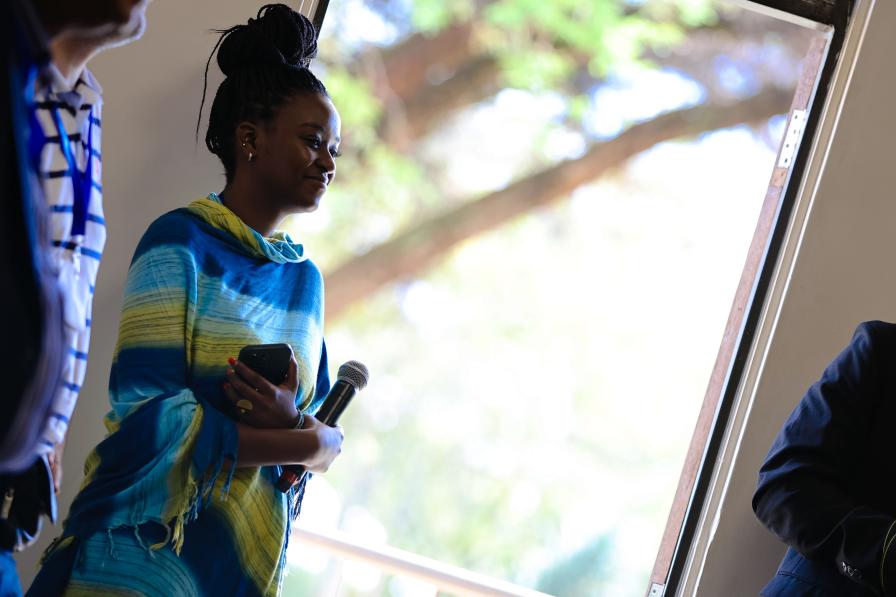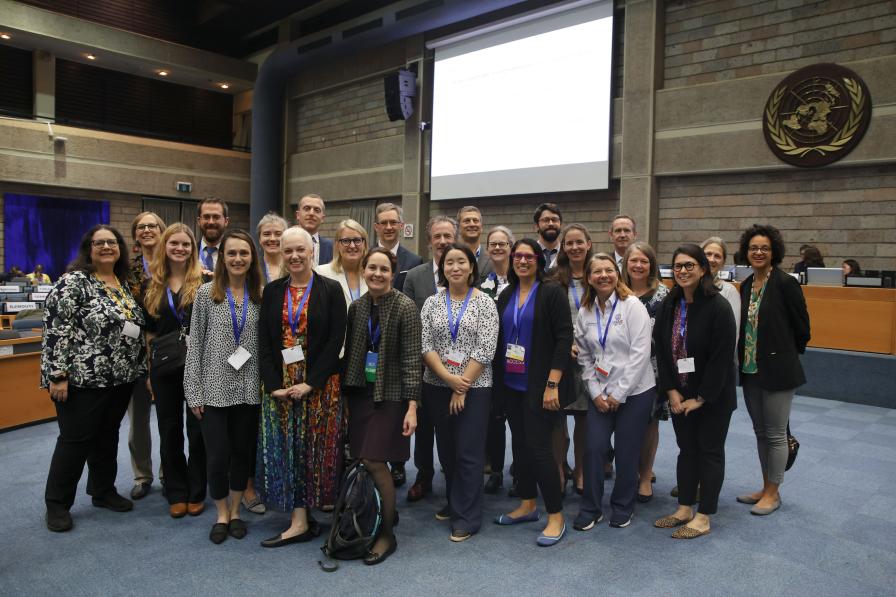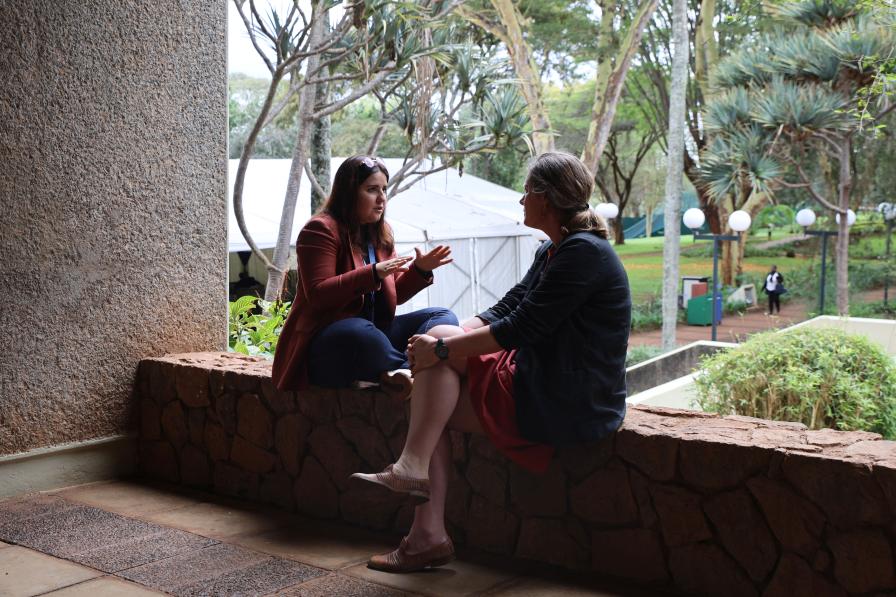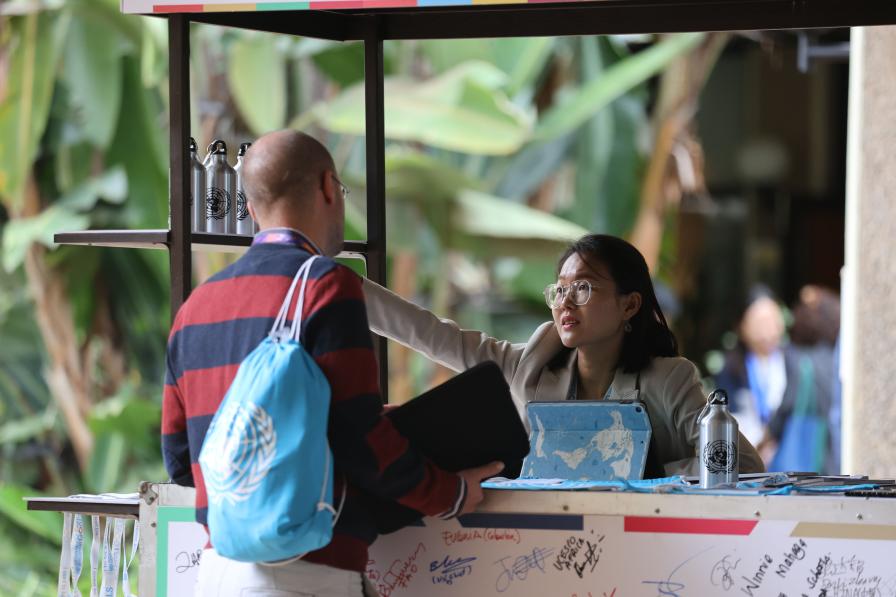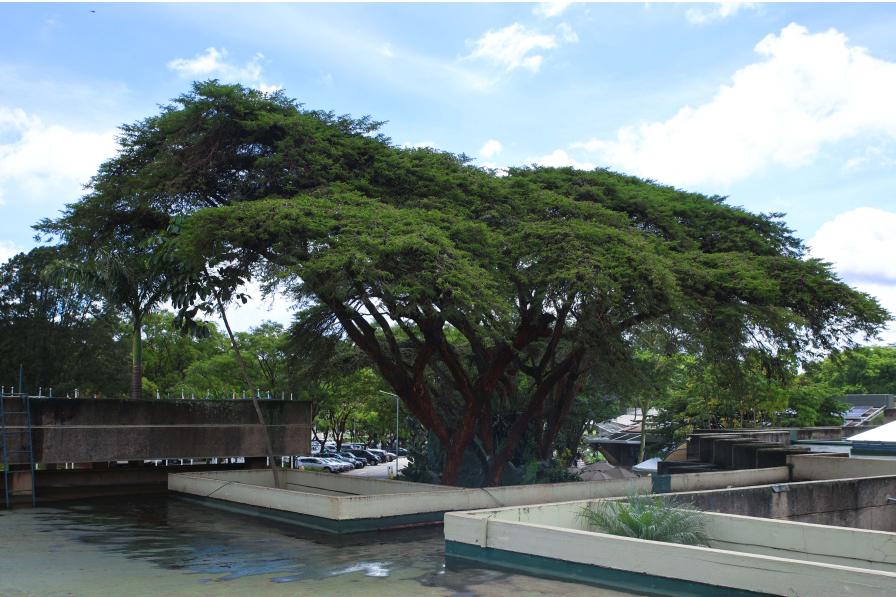Over the past half century, a plethora of multilateral environmental agreements have been negotiated and adopted. Each process offers a unique flavor, setting it slightly apart from the others. In prior negotiations, such as those related to the 2030 Agenda for Sustainable Development and the Sustainable Development Goals, delegates have been amenable to non-text-based negotiations, leaving the drafting up to specific representatives, entities, or drafting committees.
Want to dig deeper into today's talks? Read the full Earth Negotiations Bulletin daily report.
For others, including those related to the recently adopted High Seas Treaty, countries have opted to engage in text-based negotiations, guided by submissions from states and stakeholders. Often, negotiations have started off with text written as expansively as possible, which is pared down over time as delegates interact and make compromises. In other cases, text is further elaborated to allow for new ideas or add provisions reflecting differing opinions.
The latter proved to be the case on Friday, at the third session of the Intergovernmental Negotiating Committee (INC-3) to develop an international legally binding instrument (ILBI) on plastic pollution, including in the marine environment, where delegates engaged in discussions on revised sections of the Zero Draft text of the ILBI and Synthesis Report, which now reflect a myriad of options and alternative text, expanding the original 31-page text considerably.
In contact group sessions, which convened throughout the day, delegates considered ways to best review the new text, with some suggesting the creation of informal-informal groups to pare down options, including by deleting some and/or merging others. This suggestion was opposed by small delegations, who pointed out challenges associated with overlapping meetings.
Contact Group 1, co-facilitated by Gwendalyn Kingtaro Sisior (Palau) and Axel Borchmann (Germany), opened the morning session with discussions on the objectives of the ILBI, considering two distinct options: “to end plastic pollution, including in the marine environment, and to protect human health and the environment,” and “to protect human health and the environment from plastic pollution, including in the marine environment.”
Contact Group 2, co-facilitated by Katherine Lynch (Australia) and Oliver Boachie (Ghana), agreed to work together in order to identify gaps and ensure views on the issues under their purview were adequately reflected in the revised Draft. The group reviewed sections on finance, implementation and compliance, as well as provisions related to the periodic assessment and monitoring of the progress of implementation of the instrument and effectiveness evaluation.
Contact Group 3, co-facilitated by Marine Collignon (France) and Danny Rahdiansyah (Indonesia), opened discussions on written and other submissions as contained in a 63-page compilation document on elements contained in the Synthesis Report, as well as Co-Facilitators’ proposals, including a proposed “skeleton” text for Part I (preamble, definitions, principles, scope), Part V (institutional arrangements), and Part VI (final provisions) of the Zero Draft text.
A stocktaking plenary is scheduled to convene on Saturday, 18 November.
To receive free coverage of global environmental events delivered to your inbox, subscribe to the ENB Update newsletter.
All ENB photos are free to use with attribution. For INC-3, please use: Photo by IISD/ENB | Anastasia Rodopoulou.
